Palabras del Torá / a “vort” of Torah from R’ David Markus
Each month Bayit offers regular video “vorts” (words of Torah / teachings from Jewish tradition) offered in or translated into Spanish, designed for Cuban Jewish communities and available to Spanish-speaking Jews everywhere. This month’s video offering features a teaching from Rabbi David Markus. The text follows the video, in Spanish and then in English.
Palabras del Torá / a “vort” of Torah – R’ David Markus from Bayit: Building Jewish on Vimeo.
Shalom a mis hermanos y hermanas cubanos de Klal Yisrael, nuestra familia global judía que, cada dia, se siente más como una familia – a pesar de la distancia.
Espero y rezo que este mensaje los encuentre sintiéndose saludables, fuertes, resistentes y seguros.
La vista desde mi casa en Nueva York es muy diferente a la de hace un año. Hace un año, me deje llevar y pensé que el mundo era un lugar más seguro y saludable de lo que verdaderamente es. El coronavirus ha cambiado, para siempre, como yo veo el mundo, mi comunidad y toda comunidad.
Yo puedo imaginar algunas de las imágenes que el coronavirus — y también, las protestas, han traído a sus televisores y a sus dispositivos digitales. Puedo sentir algunas de las experiencias que estos cambios globales han traído a sus tiendas, a sus familias y a sus barrios: más escásez, más racionamiento, mas penuria.
En la penuria,y tambien en las protestas, tornamos los unos a los otros. Esta es la manera cubana de hacer esas cosas. Es como los judios de Cuba han sobrevivido el “periodo especial” y toda adversidad – natural o humana – tanto antes como después.
Honrar nuestra humanidad esencial – y tornar a los demás de una causa colectiva – es una lugar común cubano que muchos norteamericanos olvidan a menudo. Si bien hemos caído en la tentación de vernos como entes separados — los unos de los otros – el coronavirus nos está enseñando, una vez más, que estamos interconectados.
El mundo necesita aprender esta lección en lo más profundo de nuestras almas, y, en el alma de nuestras sociedades. Es una importante lección — y una lección, por demás, muy judía.
El judaísmo nos enseña que, a veces, sólo un cambio radical de perspectiva puede hacernos ver esta verdad y otras verdades fundamentales. Hay tiempos en la vida, tan fuertes, que lo cambian todo. En cada vida – en sus vidas y en la mía propia – hay momentos personales que nos transforman hasta el tuétano. Estos momentos de transformación también son aquellos en los que sentimos más empatía, y esto no es una coincidencia. Es una verdad espiritual fundamental.
La época del coronavirus no es solamente un época personal: es un momento global, es un momento para toda la humanidad. Estos momentos cambian civilizaciones enteras, y suceden más infrecuentemente que nuestros momentos personales de cambio – pero igual suceden, ciertos como el flujo de la historia misma.
Justamente la semana pasada, el pueblo judio celebró uno de estos momentos colectivos. Shavuot, la fiesta de la entrega de la Torá, es el aniversario en la tradición judía del momento en que Moisés y el pueblo de Israel estuvieron juntos en el Monte Sinaí. La Torá describe que Moisés, y el pueblo, estaban juntos k’ish ejad – como una sola persona – pues solo así podrían recibir los Diez Mandamientos. Unidos, como si fueran una misma persona, vieron el humo del Monte Sinaí. Unidos como si fueran una persona, sus sentidos tan confundidos que literalmente vieron el trueno: contemplaron con sus propios ojos las palabras de Dios.
Este momento fue tan confuso que cambio la historia para siempre. El judaismo, el cristianismo, el islam, el flujo del espíritu, el flujo de la historia misma — todo se remonta ultimamente al Monte Sinaí.
Ésta es una de las grandes contribuciones al mundo — no sólo la Torá, no sólo los Diez Mandamientos, no sólo las reglas del ético vivir – sino también la idea radical de que un momento de cambio de visión: cuando es compartida por todos, puede cambiarlo todo.
En el calendario judío, esto sucedió la semana pasada. Hecho y cumplido. La próxima gran fiesta es Rosh Hashaná en unos cuantos meses. – Y entonces, ¿ahora qué?
Tal vez, la lección más grande del judaísmo no es que los Diez Mandamientos hayan sido dados en una explosion de luz y amor en el Monte Sinaí, sino que la Torá no terminó – ahí en ese momento. Después del Monte Sinaí hubo una gran travesía hacia adelante: ¡Hay más libros de la Torá de Moisés que ocurren después del Monte Sinaí que antes de este!
Esto nos enseña que nuestra Torá, y nuestro judaísmo, no son sólo colecciones de grandes momentos. La Torá fue puesta en nuestras manos, por toda la posteridad, para cargarla y cumplirla dia tras dia, dondequiera que nos lleve la vida.
Esta es la lección profunda del ese mes que sigue a Shavuot. Es nuestra responsabilidad vivir estos valores, orgullosos de nuestra herencia, pero sin conformarnos con el heroísmo y las luchas de nuestros ancestros. No se trata del pasado sino del ahora: la humanidad necesita de todo nuestro ejemplo de amor, de empatía y de conexión – no sólo en las fiestas, sino cada dia.
Ustedes fueron ejemplos claros de estos principios – para mí y mi comunidad de Nueva York cuando visitamos Cuba el otoño pasado. Fue tangible, y muy especial para nosotros. Los judios de Cuba cambiaron para siempre nuestra manera de ver el mundo. Sospecho que la experiencia no fue tan especial para ustedes, ya que está es su naturaleza día a día.
Ustedes son la prueba del principio judio de que la vida judía es más que fiestas. Es el amor, la benevolencia, la compasión, y la empatía que nos mostramos los unos a los otros todos los días. Estas son las grandes joyas de la Torá: amar al prójimo como a nosotros mismos, particularmente cuando esto es difícil. Es está empatía, nuestra identidad y destino compartidos, que nos ayudarán a cumplir la Torá en nuestros días, durante este momento en que el coronavirus está transformando el mundo.
De mi corazón al de ustedes, les envio bendiciones de resiliencia y salud – y – de todo aquello que necesitamos para vivir estos valores eternos en un mundo que los necesita y nos necesita a todos.
Shalom Javerim.
Shalom to my Cuban sisters and brothers among Klal Yisrael, our global Jewish family that feels ever more like a family even across the span of distance. I hope and pray that this message finds you feeling healthy, strong, resilient and safe.
The view from my home in New York feels so different from this time last year. This time last year, I let myself believe that somehow my world was safer and healthier than it actually was. The coronavirus changed forever how I see the world, my community and every community.
I imagine some images that the coronavirus – and now the protests – have brought to your televisions and digital news feeds. I can sense some experiences that global shifts are bringing to your stores, families and neighborhoods – more shortages, more regulations, more hardship.
In hardship, we turn to each other. It’s the Cuban way. It’s how the Jews of Cuba survived the “special period” and every adversity – natural and human – both before and since.
Honoring our essential humanity – and turning to each other in common cause – is a Cuban truism that we Americans too often forget. If ever we are tempted to regard ourselves as separate from each other, the coronavirus is teaching us yet again how interconnected we are.
The world needs to learn that lesson deeply in our own souls, and in the souls of our societies. It’s an important lesson — and a very Jewish lesson at that.
Judaism teaches that the more people empathize with each other — the more our lives feel connected on the inside — the more we and our world can heal its rifts and injustices. Empathy is the felt sense that what happens to you happens to me. Empathy grows in shared experience and in knowing deeply that our fate is intertwined.
Judaism also teaches that sometimes only a radical change of perspective can help us see these and other fundamental truths. Times in life come that are so big that suddenly they change everything. Into each life, into your lives and my own, come those personal moments that transform us to our core. Those transformation moments happen also to be the moments that we most feel our empathy – and it’s no coincidence. It’s core spiritual truth.
This coronavirus moment isn’t only a personal moment: it’s a global moment, a moment for all humanity. Moments that shift whole civilizations come more rarely than our own individual moments, but they come as sure as the flow of history itself.
Just last week, Judaism celebrated one of those collective moments. It was Shavuot, the festival of receiving Torah, Jewish tradition’s anniversary of the moment when Moses and the Children of Israel stood together at Mount Sinai. Torah recounts that they stood together k’ish echad — like one person – for only together could they receive the Ten Commandments. Together as one, they saw Sinai smoke. Together as one, their senses were so scrambled that they actually saw thunder: they saw the words of God.
That moment was so scrambling that it changed history forever. Judaism, Christianity, Islam, the flow of spirit, the flow of history itself — they all trace back through Sinai.
It’s one of Judaism’s great contributions to the world — not just Torah, not just the Ten Commandments, not just rules for ethical living – but also the radical idea that a single moment of changed vision, shared together as one, can change everything.
On the Jewish calendar, that was last week — over and done. The next major holiday is Rosh Hashanah months ahead. So what now?
Maybe Judaism’s greatest teaching isn’t that the Ten Commandments were given in a burst of light and love on Mount Sinai, but rather that Torah didn’t end right then and there. After Sinai there was a great journey ahead: far more of Torah’s Five Books of Moses come after Sinai than before!
We learn that our Torah, and our Judaism, aren’t about big moments only. Torah was given into our hands for all of time to come – to carry and fulfill day after day, wherever life take us.
That is the deep meaning of this month following Shavuot. It is on us to live those values, proud of our heritage but not resting on the heroism and struggles of our ancestors. It’s not about then but about now: humanity needs every example of love, empathy and interconnection that we can offer — not just on holidays but every day.
You exemplified those principles to me and my community in New York, when we visited Cuba last autumn. It was palpable and very special to us. The Jews of Cuba changed forever how we see the world. I suspect it all felt far less special to you, because it’s how you are.
You prove the Jewish principle that Jewish life is more than festival days. It’s about the love, kindness, compassion and empathy we show each other every day. These are the great jewels of Torah — to love another as we love ourselves, even when it’s difficult. It is empathy, our shared identity and shared fate, that will help fulfill Torah in our own day, in this coronavirus moment now transforming the world.
From my heart to yours, I send blessings for resilience and health, and for all that we need to live these timeless values in a world that needs them — and needs us all. Shalom chaverim.


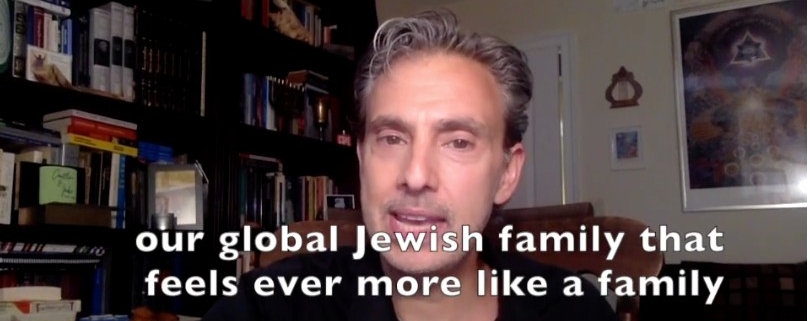
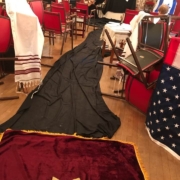
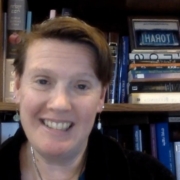
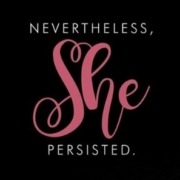
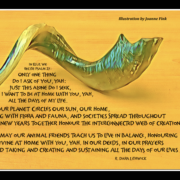

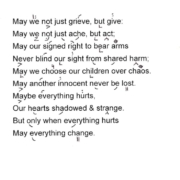


Rabbi David,
We met in Cuba last Fall when I photo-documented the Bat Mitzvah in Sta Clara of Elisa, Daisy’s grand-daughter. Here are website links including my latest RadioSefarad interview. Sunny has most of my images & videos from that simcha. Has he shared any with you/the other rabbis? To which email address may I send these images & videos? Here are 3 links to limited, backgrd.info.:
https://www.radiosefarad.com/how-jews-in-cuba-are-coping-an-update-with-linda-hirsch/